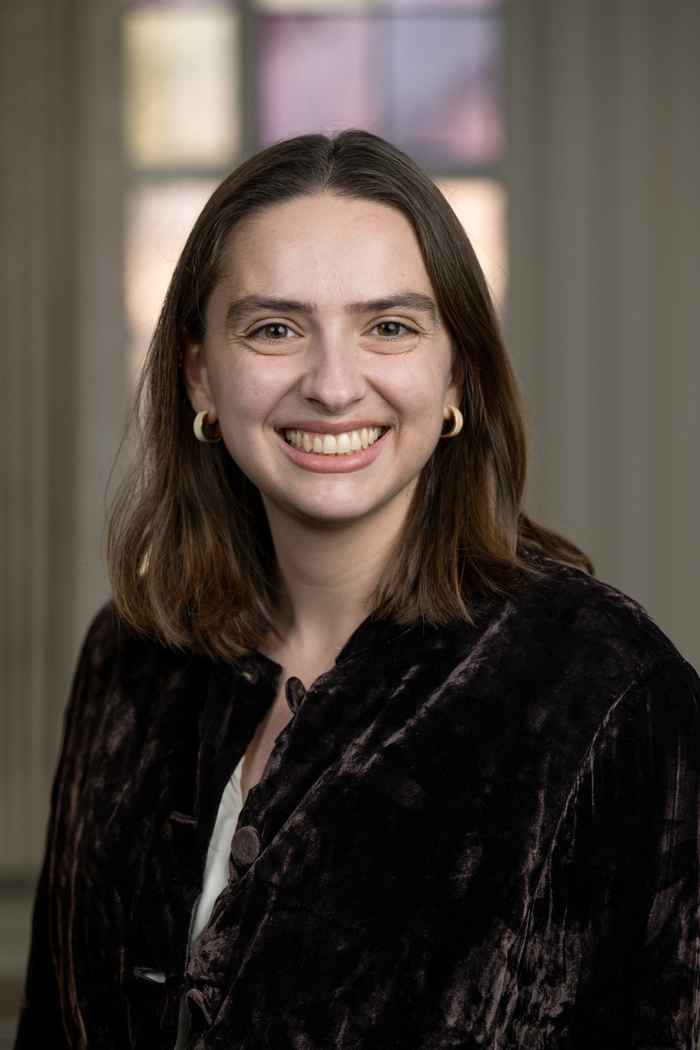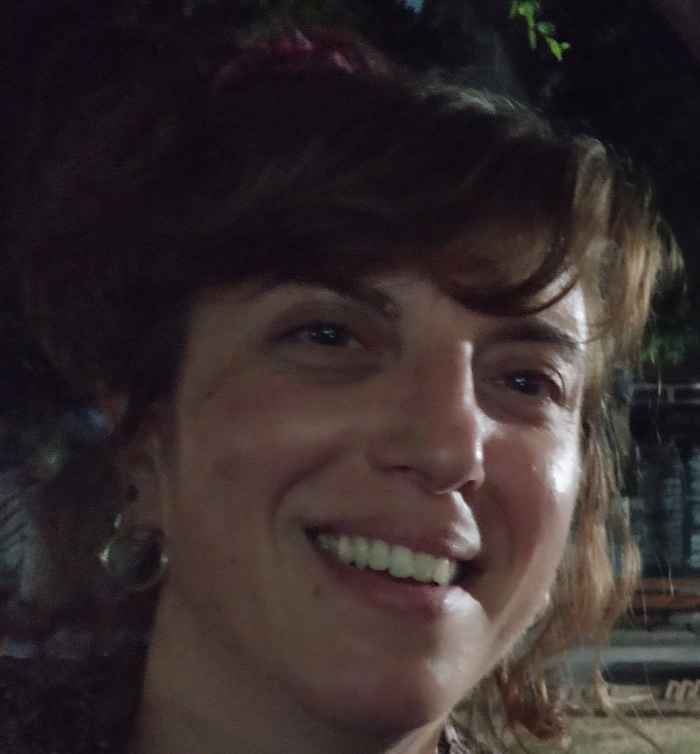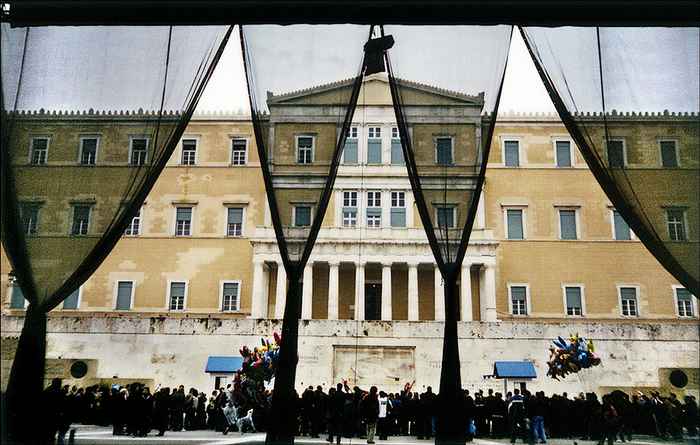Marilena Laskaridis Research Fellows 2025-2026
25 April 2025
The Marilena Laskaridis Visiting Fellowships are offered annually on a competitive basis and by application. They aim to strengthen research in the field of Modern Greek studies at the UvA and internationally, encourage academic collaborations and exchanges, and give the opportunity to young and more experienced scholars in this field to advance their research.

Amanda Kubic
Choreographing a Modern Greek Nation: Koula Pratsika, ΚΣΟΤ, and their Afterlives (second part of the 2025-2026 academic year)
This project focuses on the twentieth-century Greek choreographer Koula Pratsika and her National Dance School in Athens: Η Κρατική Σχολή Ορχηστικής Τέχνης (ΚΣΟΤ). Drawing on original archival work, I study how Koula Pratsika’s modern choreographies, performances at specific archaeological sites in Athens, and innovative dance philosophies shaped developing senses of Greek national identity in the twentieth century. I explore Pratsika and ΚΣΟΤ’s ideological and symbolic relationships to Greece as a modern nation with shifting borders and political regimes and Pratsika’s efforts to build creative woman-centered communities, whose primary purpose was to cultivate the mind and body through dance, music, eurythmics, and philosophy. In her development of Greek dance, Pratsika puts Greek women at the forefront of international conversations about aesthetics, performance, education, and employment in the arts. Yet Pratsika also reaffirms autocratic discourses about Greek cultural continuity and state projects of archaeological monumentalization, preservation, and purification, cultivating a distinctly nationalist ethos via a search for an “essential Greekness” that unites Greece’s people and its artistic practices throughout the centuries.
This project also looks to contemporary dancers trained at Pratsika’s school who have since emerged onto the international dance scene and taken Pratsika’s performance philosophies in new directions.
Amanda Kubic completed her PhD in Comparative Literature at the University of Michigan, Ann Arbor, in 2025. She holds MAs in Ancient Greek and Classics from The University of Michigan and Washington University in St. Louis, as well as a graduate certificate in Women’s and Gender Studies. Amanda’s dissertation Animating Antiquity: Classical (Dis)embodiments by Modern Women maps out an original multimedia network of poetic texts, dances, visual art, and audio-visual installations by twentieth and twenty-first-century Greek and Anglo-American women artists and gender diverse collectives to argue for their performance of “classical (dis)embodiment” via fragmentation, metamorphosis, the phantom/eidolon, and the chorus. She has presented work at several conferences in the US and abroad and has published work in the journal Modernism/modernity and in the volume Classical Reception: New Challenges in a Changing World (Eds. Bakogianni and Gomez). Amanda is the current Graduate Student Representative for the Modern Greek Studies Association.

Regina Mantanika
Repertoires of De-industrialization in Southeastern Europe (ReDSE)
(First part of the 2025-2026 academic year)
This project builds on previous collaborative work on the region of Eleusina in Greece, exploring (de)industrialization and collective memory through a community-based, interdisciplinary approach (oral history, digital humanities, visual arts, and public anthropology). The current project seeks to expand previous research by extending to other Greek cities such as Patras and Volos, and potentially to de-industrialized areas in Serbia, establishing a network of cities in Southeastern Europe that share post-industrial trajectories. A central focus of the project draws on the concept of de-industrial heritage, which serves as a framework for analyzing specific social and historical realities. While industrialization focuses on the past, de-industrialization emphasizes the political processes shaping the present. De-industrial heritage refers to both the preservation of industrial sites and the cultural memories of industrial communities. In theorizing these empirical insights, the project engages with key analytical frameworks: the notion of repertoire, which approaches the archive as an ongoing, performative conversation, and the concept of archival trouble, which examines how aesthetic and narrative reframings of industrial heritage reshape political and historical understandings—highlighting the ways history persists in the everyday.
Regina Mantanika holds a PhD in Social Anthropology and Sociology from the University Paris 7 Diderot – Sorbonne Paris Cité, where she researched the transformations of the migratory landscape in Greece, focusing on border areas and port cities. Her research and teaching interests include migration and space, borders, institutional change, urban exclusion, and the intersections of mobility and settlement. More recently, her work has centered on Elefsina, examining its industrial heritage and de-industrialized present. She has taught at the Hellenic Open University, the University of Vienna, and the University of Macedonia, and the University of Panteion and has published in peer-reviewed journals and edited volumes in English, French, and Greek.
